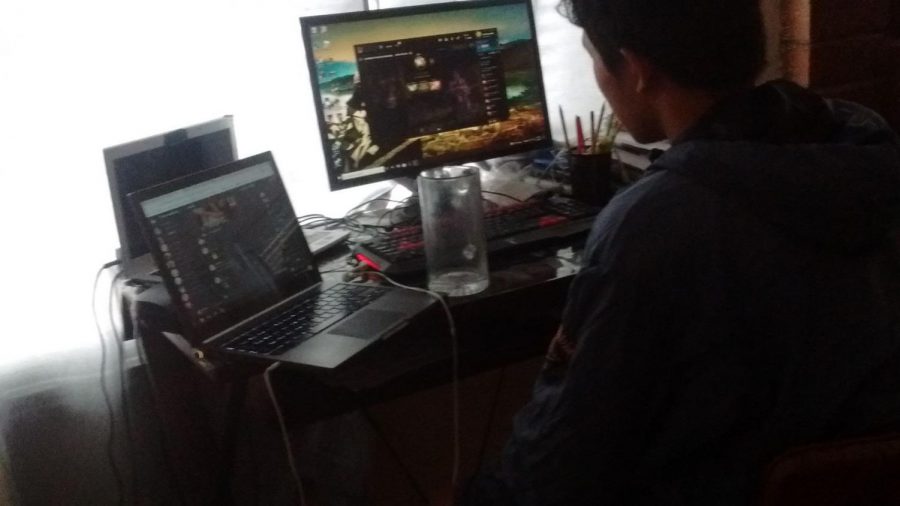Privacy in the modern era: Chinese gaming ban
League of Legends, the largest online multiplayer game in the world by player base, has their largest audience in China.
November 18, 2021
Gaming addiction: China’s youth problem
In the modern world, privacy is increasingly rising in value as it becomes rarer and harder to protect. However, gaming addiction is a serious problem as well, as the newer generations sink further down its hole.
Starting September 1st, China’s controversial decision to limit gaming hours for minors under 18 years old has highlighted this fact. Seen as both intrusive in its action but reasonable in its justification, the internet blockade that limits young teens to only three hours of gaming only on the weekends has sparked debates in the international community.
The exact policy enforces several new changes. One, three hours of gaming for minors on weekends and national holidays. Two, to play on any major platform in China, such as Tencent-owned games, any player must register themselves using an ID. If the ID proves themselves under or over the age of eighteen, then the three-hour rule will kick in automatically.
Some context is needed to understand the need for such implementation of rules.
Gaming addiction among Chinese youth is a huge problem, especially on computers and large online multiplayer games. Internet cafes are commonly filled with suspiciously young-looking boys who show up with scuffed IDs.Thousands of school children pull all-nighters on weekdays, and eyesight problems regarding extended screen time are severe. Cyberbullying becomes a large problem through these games as well.
That being said, there is some justification and necessity for the gaming ban.
“I do think that the ban is necessary. My dad told me about places [like internet cafes] in China that really push gaming addiction onto kids,” says Mike Liu (‘25).
Privacy and freedom
However, such blatant restrictions on privacy and use of the internet infringe on the all-American idea of freedom, which, unfortunately, does not apply to Chinese citizens.
The political statement made here is also obvious if looked for. It’s ridiculously easy to bypass such restrictions by using an adult or fake ID, which runs rampant in the black market in China. Gaming addiction will only be slightly alleviated with it.
It’s more so a ripe opportunity for the CCP to prove that they have the power to restrict such a widely used piece of technology, and also so they can stand on the moral high ground by claiming it is for the good of young children.
“Different political parties have different points… I agree that gaming addiction is a problem to be solved, but not by the government,” says Tingke Zhu (‘25).
It’s not up to the government to control the game time and discipline of their children, it’s up to their parents.
“Parents even have an app called Circle-they can manage their kids’ time online. I don’t think it[the government’s policy] is a good thing,” says Tingke.

The political implications of the ban
Restrictions on the internet and electronics, especially in the modern age as these articles became the main instruments of communication and media, have been on the rise in China.
“I know someone in a college in China, but he’s only 17. His gaming time has been limited, even though he’s basically an adult. It’s ridiculous. It’s not even taking away [children’s] rights, some of them are almost adults,” says Tianke Zhu.
All gaming consoles such as Xbox and Playstation have been banned in China starting in 2000, and Google has been banned since 2008. With the implementation of the new gaming limitations, another stair is carved into the ascent of government censorship and censure against rights.
“When I go back to China, I can’t go on Google or even check my email. It’s very hard to go on most American websites. I definitely feel a bit oppressed [about the internet] when I’m in China on vacation. Very annoying,” says Wei-Ting Yen(‘23).
History has proven time and again that just because governments have the means and the reason to enforce censorship, they shouldn’t. In a free, democratic society, at least, this is enforced.
In a communist country like China, however, such moral and legal boundaries do not exist.
Ultimately, gaming addiction is a serious problem that needs to be solved but is not up to the government of China to enforce.




